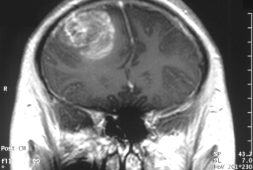
According to a preliminary study, owning a pet for at least five years or more, such as a cat or dog, could possibly be linked to slower cognitive decline in older adults.
Study author Tiffany Braley of the University of Michigan Medical Center in Ann Arbor, “Prior studies have suggested that the human-animal bond may have health benefits like decreasing blood pressure and stress. Our results suggest pet ownership may also be protective against cognitive decline.”
The study took into consideration the cognitive data from 1,369 older adults with an average age of 65 that were considered to have normal cognitive skills at the beginning of the study.
53% of the participants owned pets, with 32% being long-term pet owners, which was defined as people who owned pets for at least five years or longer. Of the study participants, ‘88% were white, 7% were Black, 2% were Hispanic, and 3% were of another ethnicity or race.’
Researchers took data from the Health and Retirement Study, which constitutes a large study of Medicare beneficiaries. In that study, participants were made to do a number of multiple cognitive tests. Researchers then used those accomplished cognitive test to develop a composite cognitive score per person, which ranged from a score of zero to 27. The composite score included common tests of word recall, subtraction, and numeric counting. Moreover, the research group used the participants’ composite cognitive scores and ‘estimated the associations between years of pet ownership and cognitive function.’
What they discovered was that over a span of six years, the cognitive scores decreased at a slower rate for those that owned pets. The difference was strongest amongst those that owned pets long-term. The study also took into account other factors that tend to affect cognitive function, and on average, they had a ‘cognitive composite score that was 1.2 points higher at six years compared to non-pet owners.’
The research group also discovered that the cognitive benefits associated with longer pet ownership was stronger for college-educated adults, Black adults, and men. However, Braley also explains that more research is required to further explore the possible reasons for these particular associations.
According to Braley, “As stress can negatively affect cognitive function, the potential stress-buffering effects of pet ownership could provide a plausible reason for our findings.”
She added, “A companion animal can also increase physical activity, which could benefit cognitive health. That said, more research is needed to confirm our results and identify underlying mechanisms for this association.”
One main study limitation was the length of pet ownership since it was only assessed at one time point. This meant that the information regarding ongoing pet ownership was not available in the study.
The study is quite new, and will only be presented at the American Academy of Neurology’s 7th Annual Meeting which will be held in Seattle from April 2 to 7, 2022, and then virtually from April 24 to 26, 2022.



